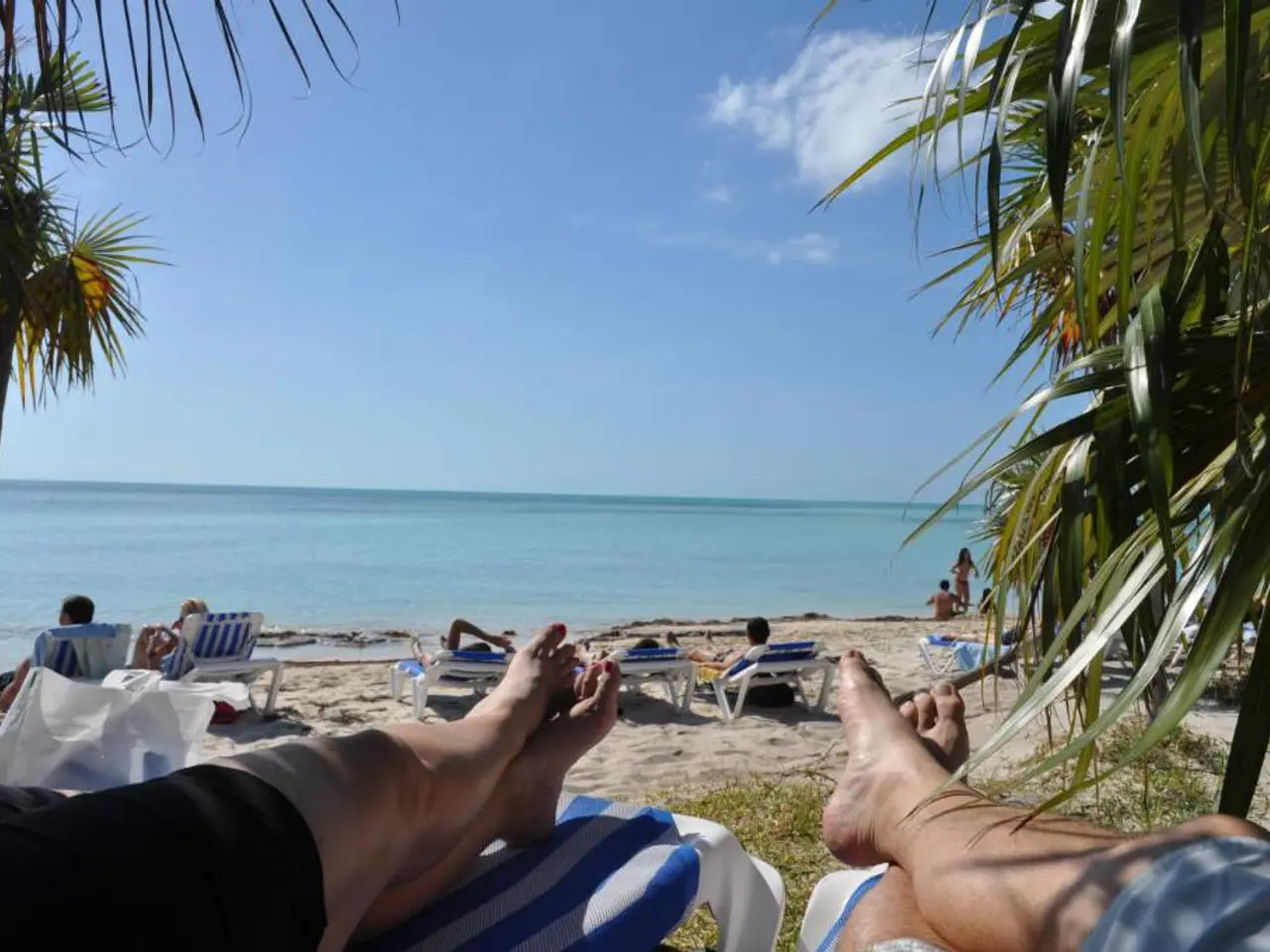Extreme heatbomb sweeps through UAE: Medical professionals issue alerts on passing out, heat exhaustion, and sunburns.
The UAE is currently experiencing a heatwave, with temperatures soaring up to 51.8°C during the Al Mirzam period, which lasts until August 10. This extreme phase of summer heat, characterized by intense desert winds known as samum, poses a significant risk to residents and visitors alike.
According to Dr. Baiju Faizal, a consultant of internal medicine at Lifecare Hospital, Musaffah, direct sun exposure should be avoided due to the risk of fainting episodes, heatstroke, and complications like electrolyte imbalance, especially in people with underlying conditions like asthma or diabetes.
Dr. Mohammad Fityan, a climate health expert at Burjeel Holdings' Centre for Climate and Health, has reported a noticeable rise in heat-related emergency room visits in recent days. Vulnerable groups—children, the elderly, and outdoor workers—are at higher risk because their bodies regulate temperature less efficiently.
To stay safe during this intense heat, key precautions include limiting outdoor activity during peak daytime heat due to the risk of dehydration, maintaining hydration by drinking plenty of fluids and seeking shade or air-conditioned environments, and avoiding direct exposure to heat.
Doctors recommend residents to drink at least three to four litres of fluids daily, including coconut water, oral rehydration solutions, and fruits rich in water, like watermelon and oranges. Improper hydration or overconsumption of plain water without electrolytes can worsen symptoms in older adults, sometimes leading to low sodium levels and confusion.
In response to the public health risks, initiatives like the Dubai Mallathon, an indoor jogging and walking event, are being implemented as a cool alternative to outdoor exercise during the extreme heat. Many fitness enthusiasts are being spotted jogging at malls in Dubai, making the most of these opportunities to maintain physical health without exposing themselves to sunstroke risks.
Health experts in the UAE are urging residents to take extra precautions, especially during the Al Mirzam period. Dehydration, sunburn, heat exhaustion, and worsening of chronic illnesses like heart or kidney disease are increasingly common due to the extreme heat.
Symptoms like dizziness, muscle cramps, weakness, and confusion may signal heat-related illnesses requiring prompt action. The public is encouraged to follow official health advisories and employers are urged to consider flexible work arrangements during this period to reduce exposure risks.
As the Al Mirzam period continues, awareness, hydration, and limited exposure to direct heat are key to staying safe. Let's all take care of ourselves and each other during this challenging time.
[1] Source: Khaleej Times, August 2, 2023.
- The weather in the UAE currently consists of a harsh heatwave, with temperatures reaching 51.8°C, which could lead to health issues like fainting episodes, heatstroke, and electrolyte imbalance.
- Amid the extreme heat, news reports have shown a rise in heat-related emergency room visits, especially among vulnerable groups, such as children, the elderly, and outdoor workers.
- In light of climate-change-induced heatwaves, scientists are emphasizing the need for focus on environmental-science solutions to combat the rising temperatures and related health risks.
- To ensure mental health and overall well-being, health-and-wellness experts recommend taking precautions like limiting outdoor activities, staying hydrated, and maintaining proper levels of electrolytes.
- During this Al Mirzam period, fitness enthusiasts are opting for fitness-and-exercise alternatives like indoor jogging events at malls to avoid sunstroke risks, demonstrating the significance of adapting to the changing weather.




